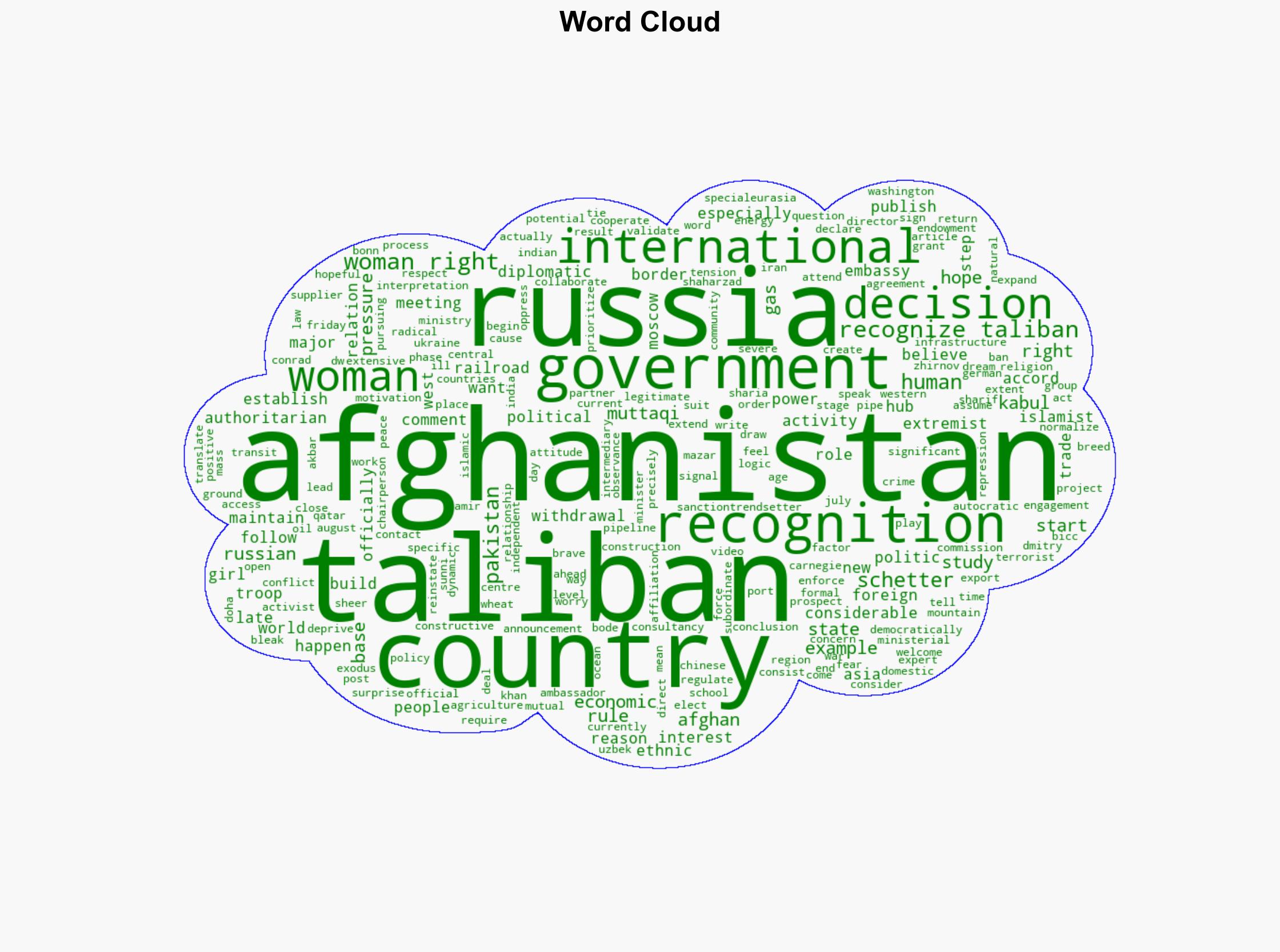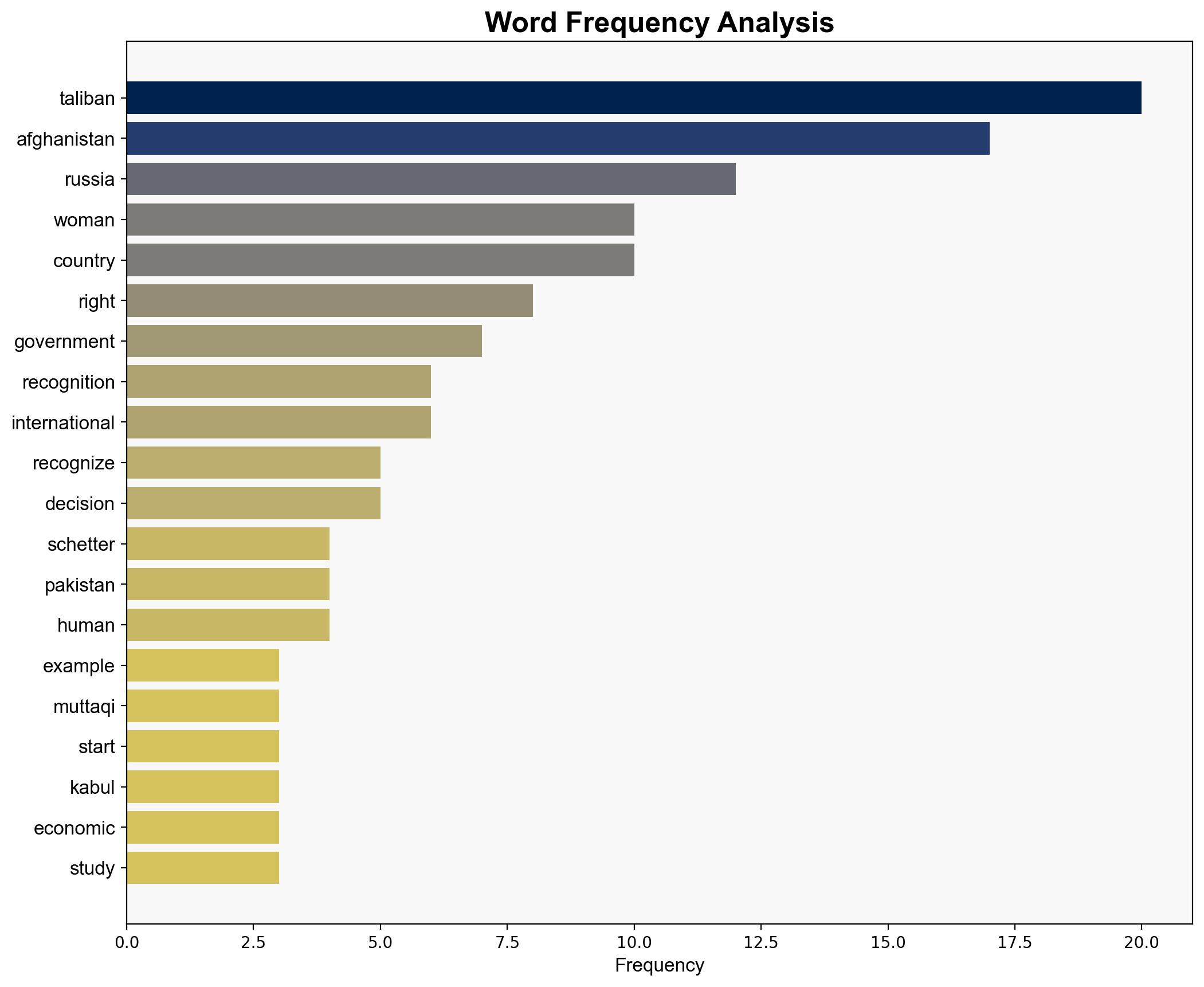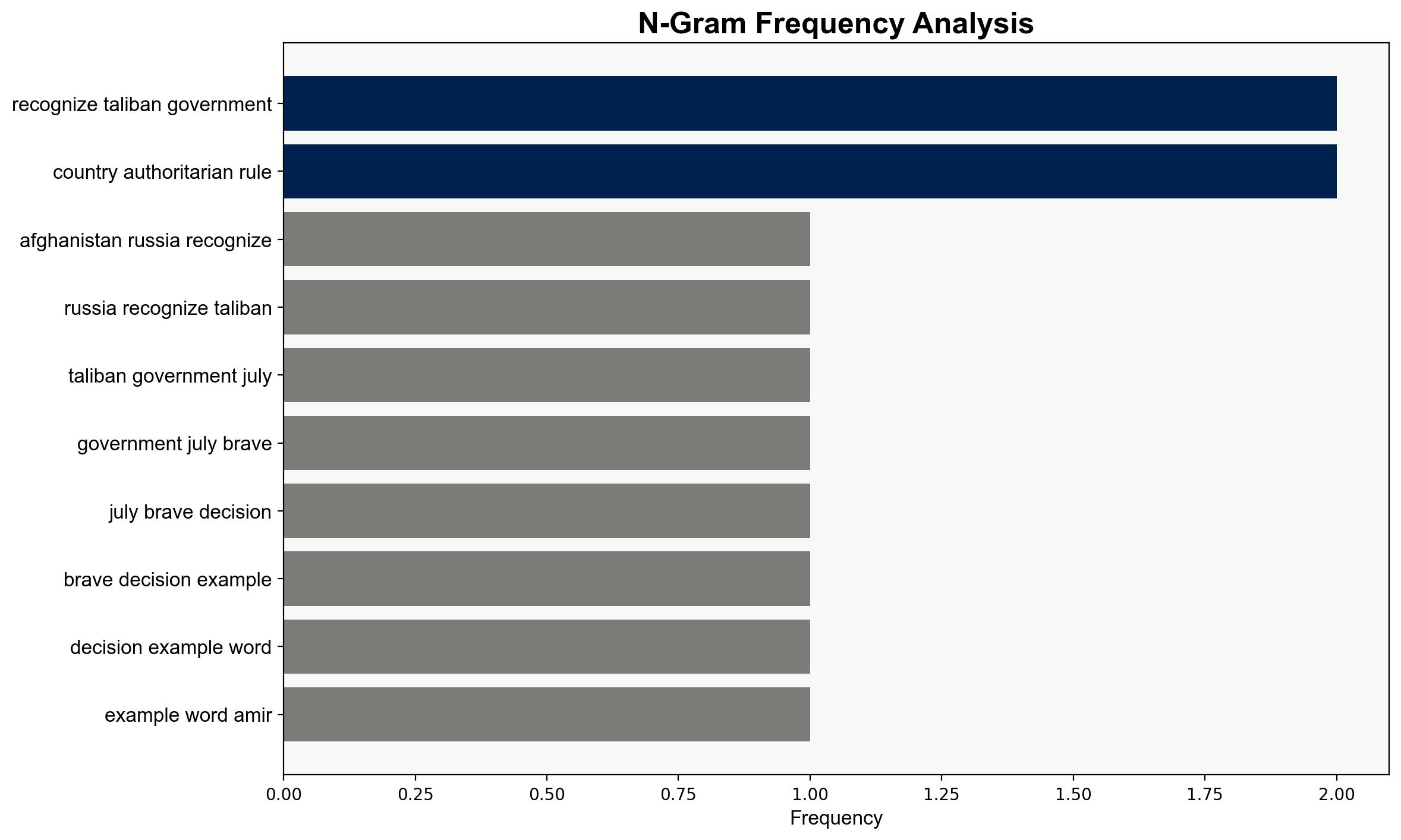Afghanistan Russia recognizes the Taliban government – DW (English)
Published on: 2025-07-06
Intelligence Report: Afghanistan Russia recognizes the Taliban government – DW (English)
1. BLUF (Bottom Line Up Front)
Russia’s formal recognition of the Taliban government in Afghanistan marks a significant geopolitical shift, potentially influencing regional dynamics and international relations. This decision may encourage other authoritarian regimes to follow suit, altering the diplomatic landscape. The move is driven by Russia’s strategic interests in establishing economic ties and leveraging Afghanistan as a trade hub amidst international sanctions. Key recommendations include monitoring regional responses and assessing the impact on global counter-terrorism efforts.
2. Detailed Analysis
The following structured analytic techniques have been applied to ensure methodological consistency:
ACH 2.0
Russia’s recognition of the Taliban is likely motivated by economic interests and the desire to assert influence in Central Asia. The decision aligns with Russia’s broader strategy to circumvent Western sanctions and expand its geopolitical reach.
Indicators Development
Monitor shifts in diplomatic engagements and economic partnerships involving Afghanistan, particularly with authoritarian states. Track any increase in extremist activities or propaganda linked to the Taliban’s international recognition.
Narrative Pattern Analysis
Assess the Taliban’s use of this recognition to bolster its legitimacy and attract support from similar regimes. Analyze potential shifts in recruitment narratives and propaganda efforts targeting regional and global audiences.
3. Implications and Strategic Risks
Russia’s recognition of the Taliban could embolden other authoritarian regimes to establish formal ties, potentially undermining international efforts to isolate the Taliban due to human rights concerns. This development may also exacerbate regional instability, with increased risks of extremist activities and humanitarian crises. The economic implications include potential shifts in trade routes and energy supply chains, impacting global markets.
4. Recommendations and Outlook
- Enhance intelligence-sharing and coordination among allies to monitor the evolving situation and counter potential threats.
- Engage in diplomatic efforts to dissuade other nations from recognizing the Taliban, emphasizing human rights and regional stability.
- Scenario Projections:
- Best Case: Limited recognition of the Taliban, with increased international pressure leading to policy reforms.
- Worst Case: Widespread recognition, resulting in heightened regional instability and increased terrorist activities.
- Most Likely: A gradual increase in recognition by authoritarian states, with mixed impacts on regional dynamics.
5. Key Individuals and Entities
Amir Khan Muttaqi, Dmitry Zhirnov, Conrad Schetter, Shaharzad Akbar
6. Thematic Tags
national security threats, cybersecurity, counter-terrorism, regional focus




